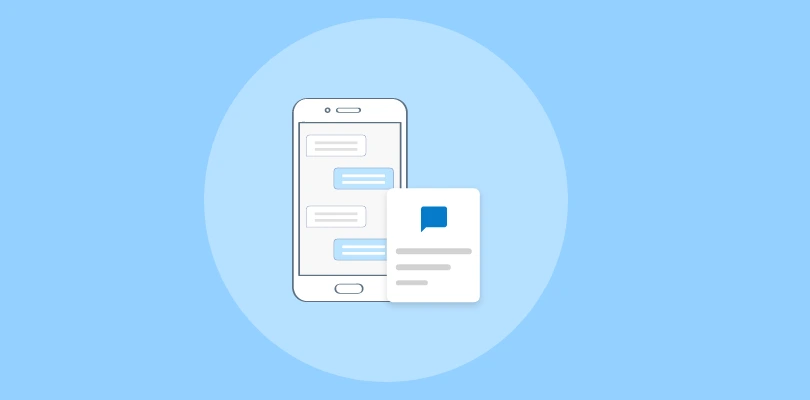My first full-time job as a grown-up was into customer service. And I’ll never forget that first time I literally got an earful from my manager, and rightly so.
I was hired to work as a live chat operator for a computer hardware store, and like most other young people, I was super confident.
So, one fine day, a website visitor initiated a chat and asked if we carried a [specific brand of] computer graphic cards.
“I am sorry,” I wrote back confidently, “we don’t sell those.”
I knew everything (like I said, I was young, confident), and I was sure the store didn’t sell that particular brand of graphics cards.
A brief pause, and the visitor queried again: “Are you sure? I think I got those from your store the last time I was there.”
“Nope,” I responded back, sending her a link to the page that mentioned all the brands we did offer. “All we have is right over here.”
Another brief pause and the visitor terminated the chat without another word.
When I walked in for work the next day, my manager called me in for a word. The visitor, as it turned out, was the Purchasing Manager for a big IT firm responsible for tens of thousands of dollars of computer hardware orders every year.
And as it was, he had made a call to my boss, unhappy about his chat with some operator the other day.
Those graphics cards? We did not sell them in-store, but we did offer them as they were a special order item!
I had no idea, but as it turned out, THAT wasn’t my mistake. The mistake that I had made was I offered a straight “No” to a potential customer. If only I was smart enough call up my manager—or for that matter, anyone who had been working there longer myself—the customer’s experience would have been very, very different.
I learned an important lesson that day: in customer service, you simply don’t say “No”. Phrases like that can only make a customer experience bad.
Over time, I have learned a few more lessons and in this post, I am going to share the 10 things that you should never say to a customer on live chat.
1. “That’s not possible / That’impossible”
Roughly translated, this phrase amounts to a (rather rude) “We are not going do this for you,” or “I don’t want to help you out.”
Instead of making a statement, what works better in a scenario like this, is to thank the customer for the suggestion he has made. Make them feel you genuinely appreciate their inputs and that their suggestions will be forwarded to the relevant department to improve the product/service further.
“Thank you for the feedback, that does sound like a wonderful feature to have,” or a “My apologies, but this feature isn’t currently available with our products,” sounds a whole lot better.
2. “I already said that / I just explained this to you”
Another rude way to tell the customer “Were you even listening when I explained the whole thing to you?”
Not all customers are created equal. There will be times when a hapless customer repeats the same query/problem all over again. If you do want to have the customer refer to a piece of information relayed earlier, you can always say:
“Please refer to the details [about the issue] I posted above”, or
“In order to resolve this issue, you need to… I mentioned it above”
Another effective way to work on repetitive questions is to rephrase your answer without asking the customer to refer to your previous response. There’s a chance the customer did not grasp it when you answered it the first time, so rephrasing might be the trick.
Read: 10 Best Live Chat Software for Your Business in 2024
3. “It’s Not Our Fault”
If the customer is unhappy about something, and you would still like to retain them as a happy customer (well, who wouldn’t), always keep in mind: the customer is always right!
It doesn’t matter whose fault it was, to begin with. And while it’s tempting, never pass the buck on, especially, back to the customer. You do need to provide him with the facts, but at the same time, take the ownership.
You see, as a customer, they are under your protection. The first order of business is to empathize with them and walk in their shoes. It’s your responsibility to make things right irrespective of whosoever was responsible for the problem.
In this case, start with an apology. Even if weren’t the cause of the customer’s unhappiness, you can still be genuinely apologetic for the situation he is in.
Once you have apologized, get on to making things right.
4. “You’ll have to / You must”
Phrases like these make you sound like you are giving out orders. As a chat operator, you need to demonstrate humility if you want to win over your customers. Try to act as an advisor, offering suggestions and instructions, not orders:
“If you can do this for me,” “I will need you to,” “You will need to,” “OK, so here’s what needs to be done”
FREE. All Features. FOREVER!
Try our Forever FREE account with all premium features!
5. “I don’t know”
Honesty may be the best policy in most situations, but when it comes to live chat support, you might want to stop being brutally honest. I am not asking you to be dishonest though, just that there are better ways to admit your ignorance! So you could instead say something like:
“I’m not sure, but let me figure that out for you.”
“You know what, that is a great question; let me find out for you.”
“I’m afraid I don’t have the complete information on this. May I put you on hold for a few minutes while I confirm this with our technical department?”
6. “That’s not my job”
Being rude again here, are we? Let’s face it: one out of every ten customers will ask you something that’s way out of your scope. Well, instead of telling them to find someone whose job it is to respond appropriately, go ahead and do it yourself.
Find someone in the organization who can help them and transfer the chat over to them. Or assure them of someone contacting them as soon as possible. So let’s see how to go about that:
“I am sorry, but this question is beyond my expertise, but Johnathan from tech support should be able to help you with that. Would you like me to connect you with him?”
On the other hand, if the customer insists for something that they ought to be doing themselves, the only option is to help them do it. If you can’t, direct them to an alternative solution.
7. “Sorry, that’s against our policy”
Policies can be useful, as they help your support team build better relationships with your customers. But policies should not be used as excuses. Good customer service is much more than just rules and policies – it’s a philosophy.
If whatever the customer is asking for cannot be done, don’t try and the word “policy” as an excuse. Instead, offer them a logical explanation on why it is not possible for you to do something and try to convince them that it’s in their own best interest.
Here’s an example:
Customer: “Could you remove this feature from my account?”
Instead of telling them “Sorry, that’s against our policy”, say:
Chat Support Representative: “I am sorry, Andy, I am not authorized to make this change. In order to ensure our customers’ security and privacy, the [feature] is allowed to be modified only by the account administrator.”
Here’s another real-world example that does a great job:
These motel rules are a great example of building trust by explaining why. Build a human business. pic.twitter.com/PpS9AAaupr
— Brendan Schwartz (@brendan) June 11, 2016
8. “Are you there?”
This is one of the most common phrases used by chat operators to nudge the visitors into actions. Chat operators do this in order to ensure their chat durations remain shorter – something that is used as an evaluation of their ability to resolve issues faster.
But to the customer, this is what it actually sounds like: “I am not wasting my time here. There are other people/things that are more important than waiting for your reply.” Ouch!
Here’s a better way:
“Sorry, but is there anything else that I can help you with,” or “Sorry, but are you still with me?”
FREE. All Features. FOREVER!
Try our Forever FREE account with all premium features!
9. “Please don’t hesitate”
Alright, you may be wondering what could possibly be wrong with saying, ‘Please do not hesitate to contact us’?” And I agree, this isn’t the worst thing you could tell your customers. But think about it, do your customers (especially the ones who paid for your products/services) really ever hesitate to contact you? I don’t think so either.
Like a lot of other customer service cliché phrases, this one tends to annoy people more than make you sound polite. In fact, if overused, the phrase may create an impression of laziness or perhaps a lack of empathy.
Here’s what you could tell them instead:
“Please reach out to me if you have any other questions about [the product or service]. We’re glad to help. You can also reach us by phone at [contact number] or online at [support link]”
10. “Please Calm Down”
There has been a plenty of research and emphasis on the importance of empathy in customer service. A lot of businesses presume that customer service is all about fixing issues and solving problems. But that’s not all there is to it. The real purpose of customer service is to provide a delightful experience that people begin to associate with your company.
Asking someone to “calm down” tends to elicit more anger than nearly any other phrase. After all, it’s upsetting to speak with someone when they just don’t get why you’re angry, upset or frustrated. Yes, customers do need to calm down in order to work on a solution, but telling them to do so will only make them more irritable.
Let them blow off steam if that helps them cool down eventually, with phrases like “I see,” and “I understand.” Eventually, they’ll cool down on their own, allowing you to move forward with a resolution. Here’s what you need to tell them instead: “I’m really sorry about your experience. It’s frustrating to have to deal with [the situation here], and I’d be annoyed too.”
Conclusion
When it comes to customer service, there are a few phrases that are better left unsaid. Hiding your own annoyance or frustration can be a bit difficult at times, but it’s very important in terms of building a positive relationship with your customers and keeping them coming back for more. Avoiding these 10 phrases won’t get rid of all your customer service woes immediately, but they will prevent a lot of unwanted frustrations.
 Tips
Tips
We’d love to hear your tips & suggestions on this article!
FREE. All Features. FOREVER!
Try our Forever FREE account with all premium features!


 We'd love your feedback!
We'd love your feedback! Thanks for your feedback!
Thanks for your feedback!







